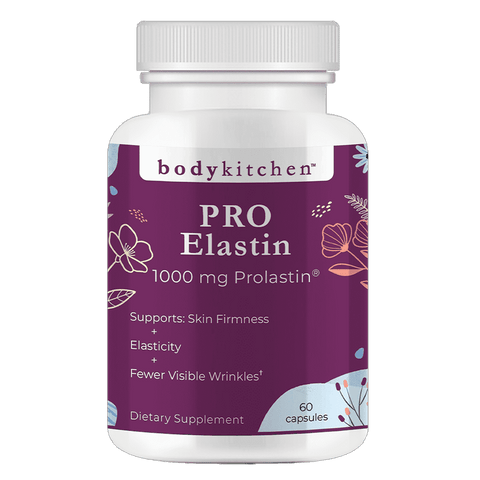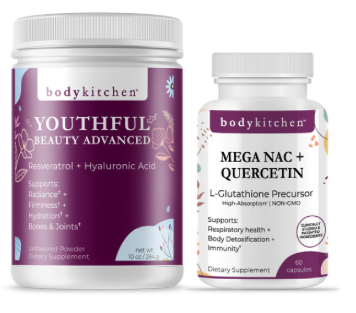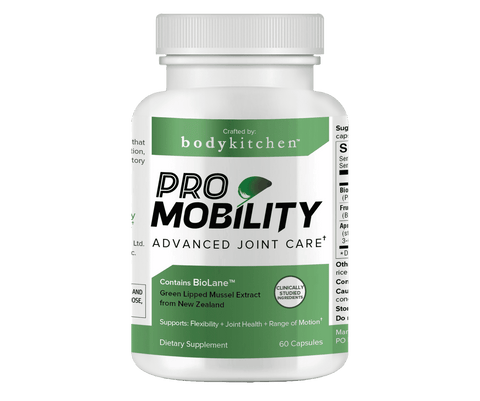Gut Health and the Immune System
The average human body has ten times as many bacterial cells as human cells. Many of these microbes reside in the gut, playing a few important roles as discussed below.
Surprisingly, one of the critical functions of gut bacteria is supporting the immune system. Understanding this immune system and gut health correlation is vital to promoting health and well-being. In this guide, we'll explain the connection, and discuss how to improve gut health and strengthen immune system function by focusing on your gut microbiome.
About Your Immune SystemBefore we get into the benefits of the bacteria in the gut and how they help to improve immune system function, let's quickly review what the immune system is. The immune system is an intricate network of proteins, cells, and organs that help protect human body cells.
What Is the Function of the Immune System?The immune system's primary job is to keep you from getting sick, as much as possible, and help you recover quickly when you fall ill. When your immune system detects a harmful microorganism, a cascade of reactions occurs to make your body less hospitable to the bacteria or virus so that it will stop replicating and die.
The immune system has a memory that allows it to recognize pathogens that it has come in contact with beforehand and to respond quickly. This is why it's possible to encounter germs in your environment and not ultimately get sick from the exposure. The job of your immune system is to work quickly and to fight off any potential infection.
What Is the Connection Between the Gut and the Immune System?
Now that you know what the immune system does and its function, we can get into the improve-immune system question. Read on to learn about key terms and the gut health-immune system link.
What is Gut Bacteria?Gut bacteria is the term for bacterial organisms that live inside the gut. There are roughly 100 trillion bacteria in the gut. Some are symbiotic bacteria that live on substances in the gut and assist the body with critical functions. Others are harmful bacteria that can cause illnesses if left unchecked.
What Is Gut Flora?Gut flora is just another word for gut bacteria. The term describes both the good and bad bacteria present in the gut.
What Is the Gut Microbiome?The gut microbiome is the term for the collection of microorganisms that live inside the gut. The word microbiome refers to the fact that the gut is a complete ecosystem where microorganisms interact with each other and their environment.
Where Is the Gut Microbiome Located?The gut microbiome or gut biome is located in the digestive system. Primarily, it is found in the small and large intestines.
What Does Gut Bacteria Do?Gut bacteria feed on substances found in foods, such as inulin, starches, gums, pectin, and certain sugars. Using this fuel, good bacteria in the gut perform the following jobs:
-
Supplies the body with critical nutrients needed for well-being
-
Produces vitamin K
-
Breaks down bile so that it can be recycled back to the liver
-
Helps the body digest cellulose
-
Aids in the production of new blood vessels
-
Plays a role in the function of the nerves that control the digestive system
-
Assists in regulating hunger, blood sugar levels, and satiety
Simply put, the human microbiome that is located in the gut helps your body function properly. Intestinal bacteria support the activities of your digestive, endocrine, nervous, and immune systems. When the gut microbiome functions appropriately, all these systems work more efficiently.
How Does the Digestive System Work with the Immune System?
Now to the big question--how does the immune system work with the digestive system? There are a couple of ways that gut bacteria boost immunity. The bacteria do all the following.
Compete with Harmful Bacteria
Resources are limited in the human gut microbiome, with good and bad bacteria needing food to survive. By using many resources, beneficial gut bacteria limit the amount left over for harmful microorganisms, restricting their ability to multiply. This reduces the number of bacteria that the immune system must fight to ward off illnesses actively.
When levels of good bacteria become depleted within the gut, harmful bacteria such as H. pylori and C. difficile can take over, leading to bacterial infections.
Keep Harmful Microbes Maintained
Another part of the connection of the gut and immune system is owed to by-products that beneficial bacteria release. Called short-chain fatty acids, these substances help maintain what is known as the gut barrier. You can think of it similar to a shield that keeps harmful human gut bacteria from escaping the digestive system and entering the bloodstream, where it could spread and cause severe infections in other parts of the body.
Regulate Inflammation
The third piece of the microbiome and immune system relationship relates to inflammation. Inflammation is an integral part of the body's natural defense system. When a threat is detected, inflammatory cells and cytokines from the immune system produce an inflammatory response that helps to capture the harmful microorganisms and jump-start the healing process.
Unfortunately, the inflammatory response doesn't always work as intended. The immune system sometimes overreacts, triggering chronic inflammation that can contribute to, or cause, medical conditions. Studies show that short-chain fatty acids secreted by beneficial gut bacteria help to regulate the inflammatory response, reducing the risk of over-activity.
How Much of Your Immune System Is in Your Gut?
If you find it surprising to know that there are bacteria in the immune system, you'll be shocked to learn just how much of your immune system is centered in the gut due to the beneficial microorganisms. Scientists estimate that 80% of your immune system cells are found inside the gut. Knowing this, it's no wonder the gut health and immune system are so strong.
What Are the Signs of an Unhealthy Gut?
When people refer to gut health, they describe how well good and bad bacteria are balanced within the gut. A healthy gut is one where there is an adequate supply of good bacteria to support the immune system and other processes, while an unhealthy gut is one where levels of beneficial bacteria are diminished. Signs of an unhealthy gut include:
-
Frequent upset stomach
-
Ongoing fatigue
-
Difficulty sleeping
-
Inability to digest certain foods
-
Extreme cravings for sugar
-
Unintended weight gain or weight loss
-
Inflammatory skin conditions, such as psoriasis, acne, and eczema
-
Frequent headaches
-
Autoimmune disorders, such as thyroid disease, rheumatoid arthritis, and multiple sclerosis
-
Frequent mood swings
How Do You Build Gut Immunity?
If you're wondering how to boost immune system function, the gut is an excellent place to start. You can typically support gut health and immunity by:
-
Eating at least seven servings of fruits and vegetables daily
-
Consuming small amounts of healthy polyunsaturated and monounsaturated fats daily
-
Maintaining a healthy weight
-
Adding protein to every meal and consuming wild-caught fish as much as possible
-
Prioritizing healthy whole foods over processed foods
-
Getting enough sleep
-
Exercising regularly
-
Taking high-quality probiotic supplements
If you're looking to get started with a gut-healthy diet, here are three superstar foods to add to your regular dietary rotation:
-
Fermented foods such as kimchi and sauerkraut
-
Onions and garlic
-
Yogurt and kefir
These foods can help feed beneficial bacteria and/or contain good bacteria that can supplement what's currently present in your gut.
What Is the Fastest Way to Heal the Gut Microbiome?The fastest way to heal the gut microbiome is to boost good bacteria levels with a probiotic supplement, such as Body Kitchen Gut Balance. Our formula contains citrus probiotics that have been clinically shown to be able to travel to the colon intact and contribute to a healthy microbiome. Each serving delivers 6 billion colony-forming units (CFU) of good bacteria from three live strains. Two capsules per day supply a clinically effective dose of beneficial probiotics to support the immune system and overall health and well-being.
















